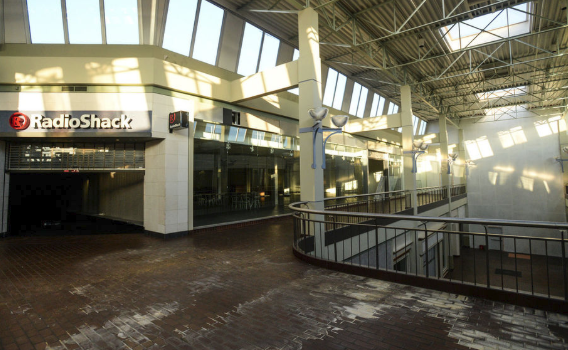Things are going so bad at America’s malls that landlords are no longer just offering rent reductions, they’re becoming payday lenders to tenants that are trying to stay afloat.
Boutique bank PJ Solomon has even organized discussions with several mall owners about employing such a strategy – landlords offering lending – for embattled retailer Forever 21, according to Bloomberg. People in the industry believe that this strategy could serve as a model for the future of the retail sector.
In order to keep distressed companies out of court, rent and other liabilities could be converted into secured debt that would help companies free up working capital. If the retailer later winds up restructuring, the landlord could bid on assets or have a stronger say in the bankruptcy process.
Brick and mortar retail remains a critical situation in the United States. More than 7500 US retail storefronts have shut down in 2019 alone, with names like Payless and Gymboree closing operations. Landlords are faced with the choice of cutting rents or dealing with empty properties that don’t have occupants ready for them. Bloomberg estimates that “less than half” of US malls are going to survive the industry’s disruption.
Mall owners have been flexible (though they haven’t had much of a choice), considering options like outright purchases of bankrupt tenants to help keep stores from going dark. Three years ago, Simon Property Group and General Growth Properties bought Aeropostale, Inc., helping keep more than 200 of it stores active and open.
Scott Stuart, chief executive officer of industry group Turnaround Management Association said:
“Unless the landlords are going to repurpose their properties altogether, they still have to capture the greatest value they can from retail tenants. If they can get creative about keeping the stores open, it may be a win-win situation.”
Simon Property Group CEO David Simon said in July that the company is considering pursuing investments similar to the way they did with Aeropostale.
Simon said:
“We certainly have the ability to help beyond what you might do on the leases and become an investor in a distressed situation. So we have kind of the ability, together or individually or some combination thereof, to look at becoming more than just a real estate player, but a buyer of these brands.”
And this could actually put mall landlords at somewhat of an advantage: their proximity to retail stores give them a unique level of insight as to where successful investments could possibly be made in the industry going forward, as it continues to evolve and disrupt.
via ZeroHedge News https://ift.tt/2YyGYYG Tyler Durden

